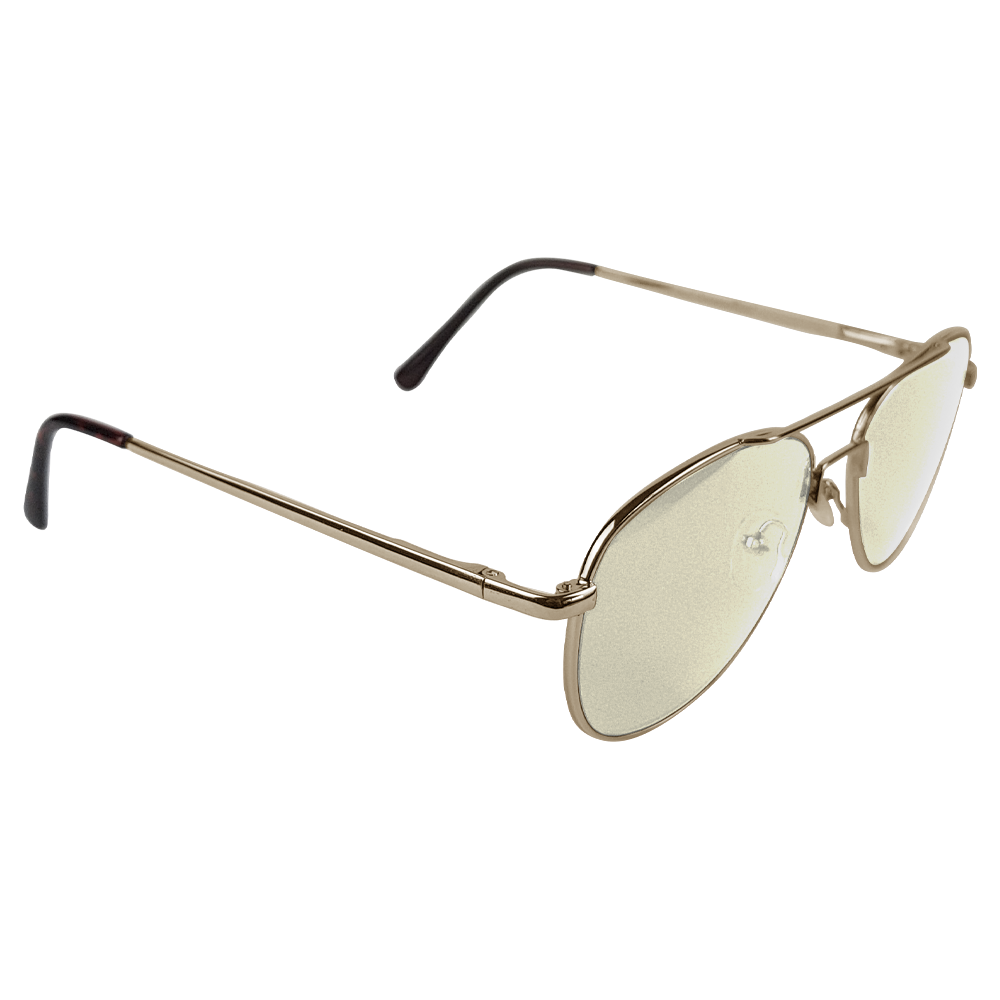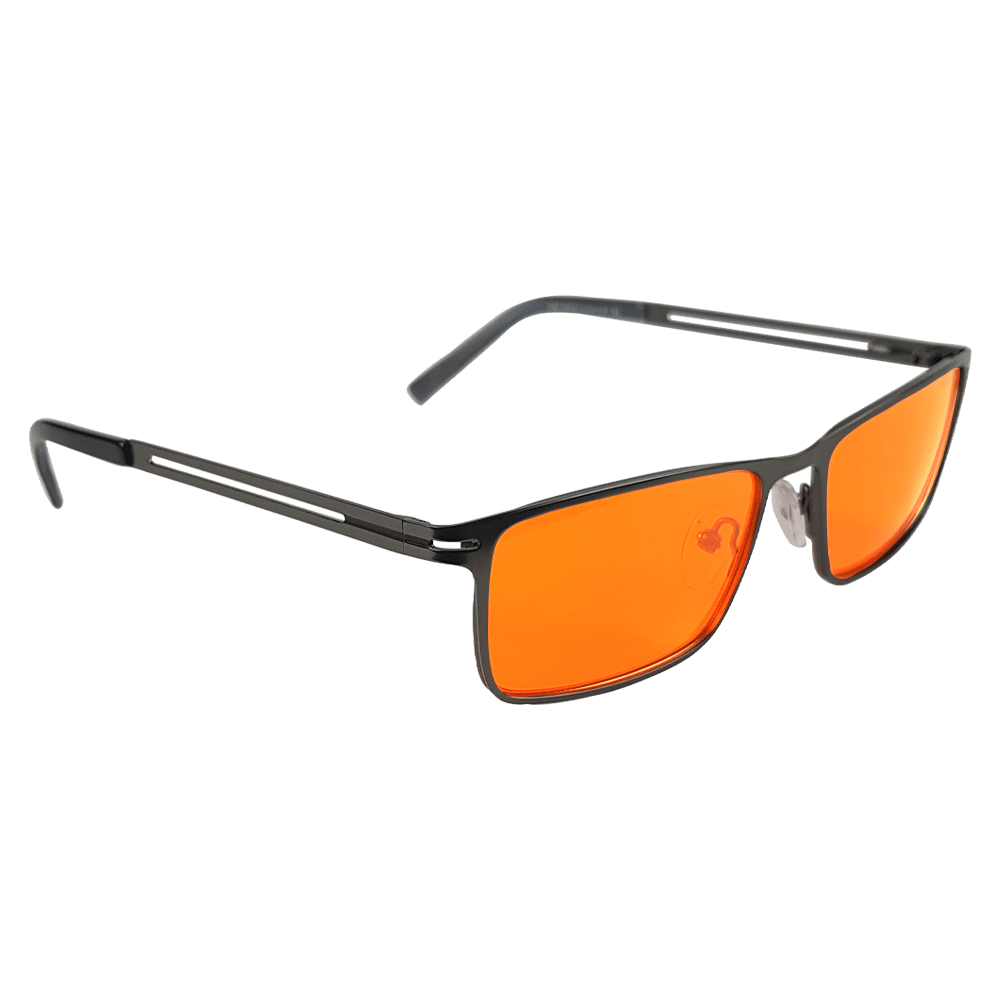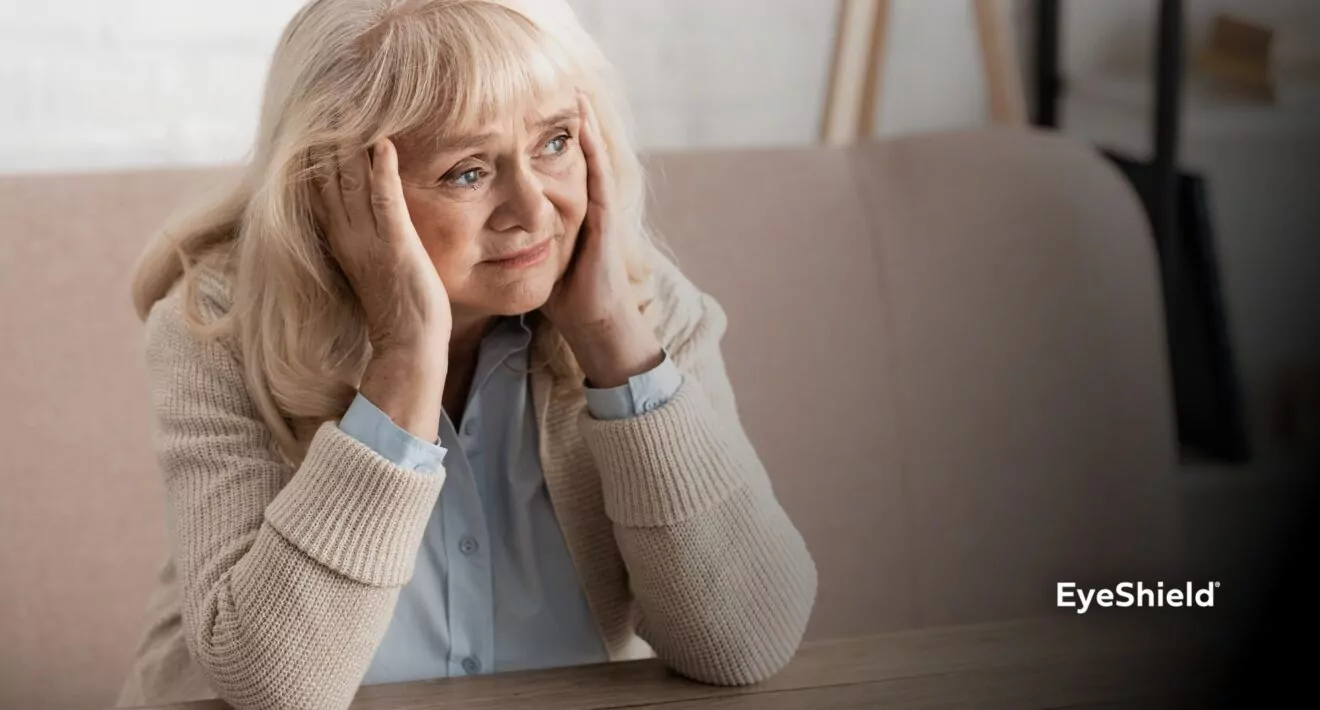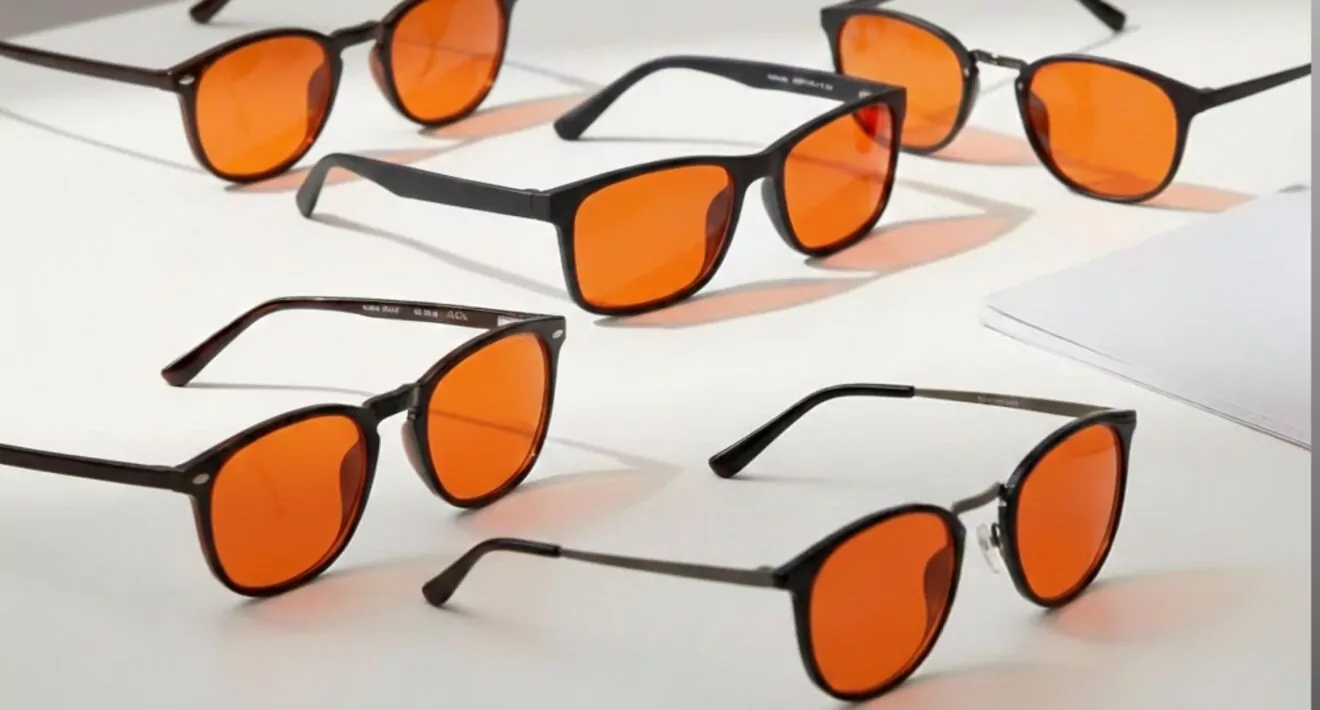Brak produktów w koszyku.
Blue blocker glasses for night vs day – what’s the difference?

Dodano: 21 lutego 2021
If you’re reading this article, you probably already know how excess blue light affects you. Like most of the people who visit this site, you want to get over headache and eye pain, insomnia, or other reasons for viewing too much artificial light. You know there are “day” and “night” glasses that block blue light, but there is no information on the internet about which glasses are better for you. See a fair comparison of our glasses – DayShield and NightShield and make the right decision!
How do blue light blocking glasses work?
Simply put, your eyes – and your entire body – need to rest and regenerate while they would do so in their natural environment to be fully functional. Melatonin, the hormone released when you stop looking at high-power visible light, emitted mainly by the sun, phone screens, computers, televisions, and light bulbs, has the greatest influence on this process. If you use these devices after dark, you are disrupting your circadian rhythm and your body is under chronic stress. This translates into less and more bothersome ailments – from migraines, through pain in the eyes, to depression and heart disease.
You can read more about why your body cannot cope with the constant presence of artificial light and what the consequences are at Light and technology
What happens when you start wearing blue blocker glasses while leading this lifestyle? Their lenses have an almost colorless or orange blue light filter (also green in the case of EyeShield glasses). By using them knowingly, you will begin to control when and in what amounts this light reaches your retinas, which in turn “communicate” with your internal clock. Thanks to such glasses, you can get rid of ailments resulting, for example, from working at the computer, but also give your body time to prepare for sleep, forgetting about insomnia or night wake-ups.
Okay, but what does it mean to “use them knowingly”?
DayShield, i.e. glasses that will reduce the impact of blue light on your body
DayShield lenses are a rescue for anyone who spends a lot of time at the computer, works in a hall, shopping center or other well-lit place. Due to the fact that they have a filter that blocks 40% of blue light, their lenses are almost completely transparent. This percentage is not accidental – even during the day, about 40% more light reaches your retinas than they can “tame” without side effects.
By wearing DayShield glasses indoors, you make your screens perceive to your eyes just like sunlight. However, what is very important, you must remember that the sun (natural light) is your ally – even on a cloudy day. Therefore, whenever you go out in the fresh air, take off those glasses.

DayShield Blue Light Blocking Glasses:
- block about 40% of high-power light, ensuring that staring at the LED screens does not have a negative effect on you,
- perfect for people who work at a computer or with intense, artificial light,
- almost transparent lenses that do not differ in appearance from the corrective ones,
- intended to be worn between sunrise and sunset, only under artificial light.
NightShield, a shield that will fully protect you from blue light
Do you watch series before bedtime? Or maybe, to rest after work, do you like playing computer games, browsing social media or just watching TV? NightShield glasses can make you feel small to big changes in your life.
NighShield blocks 100% of blue light. They make it possible for your body to produce melatonin (responsible for sleepiness and regeneration) in the right amount and time, regardless of your plans after sunset. Due to their properties, their lenses are orange – only this color is able to provide them with such high efficiency.
The correct level of melatonin works on several levels. First of all, it makes you feel sleepy after about 4 hours of putting on your glasses and you don’t get tired of falling asleep. Secondly, it allows all your organs to fully rest and – if that is their cause – eliminates unpleasant waking up at night. Third, it also helps you stay focused during the day and finally feel what it’s like to have tons of energy first thing in the morning. Night glasses cannot be worn before sunset, as this will cause the opposite problem – cortisol deficiency.

Blue light blocking glasses for the night – NightShield:
- block as much as 100% of blue light and most of green light, allowing your body to prepare for sleep,
- a solution for everyone who uses the artificial light of lamps or computer, telephone and tablet screens after sunset,
- due to the color change, we do not recommend driving a car in them (otherwise they are safe and you can get used to them quickly),
- intended to be worn after sunset or 3-4 hours before bedtime,
- it is not a good idea to wear them during the day, for this suppose we recommend DayShield
TIP: When you feel the first effects of shifting your body’s circadian cycle closer to the natural one, it depends, among others, on what kind of lifestyle you lead. Some people feel the difference on the first day, others after a week, but almost all confirm that it is noticeable more and more every day.
DayShield vs NightShield – are any kind of blue light blocking glasses better?
Each series of EyeShield glasses has slightly different tasks. In conclusion: how do they differ from each other?
- Blue light blocker: DayShield do this at 40%, and NightShield at 100%.
- Color: DayShield is almost transparent and NightShield is orange.
- Protection: DayShield is the best solution to wear indoors during the day, and the NightShield will calmly handle light after sunset.
- Effects: DayShield eliminates eye pain, migraines and other symptoms that accompany the excess of blue light, and NightShield regulates the hormonal balance, improves the quality of sleep and increases concentration. The effects of wearing them, however, are similar and complement each other.
- Car driving: DayShield does not affect your vision while driving, and NightShield can make it difficult.
NOTE: DayShield glasses will not provide you with sufficient protection after sunset, and may be counterproductive if you start wearing them outdoors during the day. On the other hand, NightShield should not be put on before sunset (4 hours before bedtime at the earliest).
As you can see, the “orange filter” glasses designed to be worn at night and during the day work on many levels and complement each other in their actions. You will feel the fastest and most spectacular effects of their operation when you decide to wear them according to the cycle – during the day, in artificially lit rooms, wear DayShield, and 4 hours before bedtime, wear NightShield.
However, if you can’t afford it, think about what’s causing you more trouble: insomnia, trouble falling asleep, eye and headaches at bedtime, or migraines, lack of concentration and low efficiency during the day? In the first case, the NightShield series glasses will help you more, and in the second – DayShield series.
Remember that they all work in the long run too. By providing you with greater peace and regeneration, they can lower the risk of contracting some civilization diseases, as well as take care of the health of your eyes and the overall quality of life. For that to be the case, you have to wear them regularly – regularity pays off! If you want to know what else to consider when buying a pair of glasses for yourself, see the article How to choose effective blue light blocking glasses?



